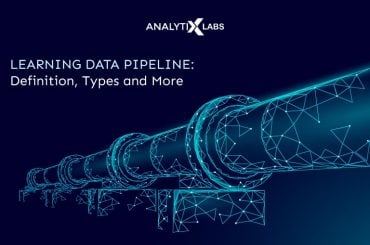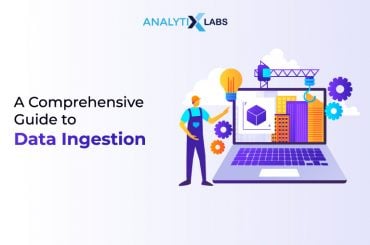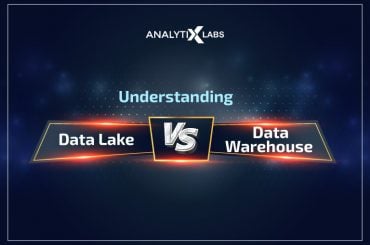 Hadoop framework is written in Java language, but it is entirely possible for Hadoop programs to be coded in Python or C++ language. This implies that data architects don’t have to learn Java if they are familiar with Python. World of analytics doesn’t have many Java programmers (lovers!), so Python comes across as one of the most user-friendly, easy to learn, flexible language, and yet extremely powerful for end-to-end advanced analytics applications. We can write programs like MapReduce in Python language, without the need for translating the code into Java jar files. The first order of business is to check out the Python frameworks available for working with Hadoop:
Hadoop framework is written in Java language, but it is entirely possible for Hadoop programs to be coded in Python or C++ language. This implies that data architects don’t have to learn Java if they are familiar with Python. World of analytics doesn’t have many Java programmers (lovers!), so Python comes across as one of the most user-friendly, easy to learn, flexible language, and yet extremely powerful for end-to-end advanced analytics applications. We can write programs like MapReduce in Python language, without the need for translating the code into Java jar files. The first order of business is to check out the Python frameworks available for working with Hadoop:
- Hadoop Streaming API
- Dumbo
- Mrjob
- Pydoop
- Hadoopy
Before we explore industry use cases where Python is used with Hadoop, let’s make a distinction between these two technologies. Hadoop is a database framework, which allows users to save, process Big Data in a fault-tolerant, low latency ecosystem using programming models. However, Hadoop has recently developed into an ecosystem of technologies and tools to complement Big Data processing.
On the other hand, Python is a programming language and it has nothing to do with the Hadoop ecosystem. Python is an object-oriented language, similar to C++ or Java, but is used for a variety of applications like web development, advanced analytics, artificial intelligence, natural language processing, etc. Python is a flexible language with an abundance of resources and libraries, and it concentrates on code productivity and readability.
With a choice between programming languages like Java, Scala, and Python for the Hadoop ecosystem, most developers use Python because of its supporting libraries for data analytics tasks. The majority of companies nowadays prefer their employees to be proficient In Python, because of the versatility of the language’s application; and they use Hadoop Streaming API (preferably for text processing) along with other such frameworks to deal with Big Data problems using Python language. Hadoop Streaming API is a utility that goes along with Hadoop Distribution. Hadoop streaming allows users to create and execute Map/Reduce jobs with any script or executable as the mapper or/and the reducer.
In this article, we have highlighted several examples of how tech companies are using Hadoop with Python.
- Facebook Face Finder Application
Facebook is leading research and development in the discipline of image processing and it processes huge amounts of Image-based unstructured data. Facebook enables HDFS to store and extract this enormous data, and it uses Python as the backend language for most of its Image Processing applications such as Image resizing, facial image extraction, etc.
Therefore Facebook uses Python as a common platform for its image-related application and uses Hadoop Streaming API to access and edit the data.
- Quora Search Algorithm
Quora manages an incredible amount of textual data using Hadoop, Apache Spark, and several other data-warehousing technologies. Since Quora’s back end is developed on Python; this language is used to interact with the HDFS. Hence Quora uses Hadoop with Python to extract Questions upon search or for suggestions.
- Amazon’s Product Recommendation
Amazon has a leading platform that suggests preferable products to existing users based on their search and buying patterns. Their machine learning engine is built using Python and it interacts with their database system, i.e. Hadoop Ecosystem. These two technologies work in coherence to deliver a top-of-the-class product recommendation system and fault tolerant database interactions.
Multiple disciplines have inducted the use of python with Hadoop in their application. This is because Python is a popular language with various available features for Big Data Analytics. Python programming language is dynamically typed, extendable, portable, and scalable; which makes it a lucrative option for Big Data application based out of Hadoop. Some of the other notable industry use cases for Hadoop with Python are mentioned below:
- Limeroad integrated Hadoop, Python, and Apache spark to create a real-time recommendation system for its online visitors, using their search pattern.
- Images acquired from Hubble Telescope are stored using the Hadoop framework and Python is used for image processing on this database.
- Youtube’s recommendation engine is also built using Python and Apache Spark for real-time analytics.
- Animation companies like Disney use Python and Hadoop for managing clusters for image processing and CGI rendering.
What has changed in Big Data ecosystem post 2018?
For long time, Hadoop was considered as synonym of Big Data especially between 2012 & 2018. Most of the Big Data Software developed on top of Hadoop or complied with Hadoop.
It offers a great framework for big data management with key features like distributed storage (HDFS), distributed processing (Map Reduce), Resource Management (YARN), and it is good for large-scale batch processing tasks that won’t require ACID-compliant data storage. However, it comes with certain challenges for organizations.
- Upfront cost & time for setting up infrastructure
- Real-time processing challenges
- Frequent releases of software versions
- Scale-up & Scale down in a quick manner
- High Maintenance cost
- Data security
- Continuous up-gradation of resources (Hardware, software)
- Difficulty in integration with new data sources due to version issues
However, a significant shift occurred from 2018 onward and many new alternatives gained traction. Leading the pack is cloud-based infrastructure for Big Data management to address the aforementioned challenges.
A. Cloud platforms (GCP, AWS, Azure, Data Bricks, IBM, and Oracle, etc): These platforms offer some of the open-source & proprietary frameworks for distributed storage, parallel processing. Also offer a variety of additional services including Networking, Security, Artificial Intelligence and cognitive services.
B. Distributed Processing Frameworks: Spark, Storm, Flink, Presto, Samza, KUDU, Airavatha, Grid computing (SAS), Tez, Impala, Beam, Apex, etc.
C. Distributed Storages Systems: NoSQL databases like Cassandra used by Facebook, BigTable using by Google, Couchbase used by Paypal/ebay, Druid used by Yahoo/Netflix, DynamoDB used by Amazon, MongoDB used by many small and large enterprises, Redis, HyperTable, Voldemort using by LinkedIn etc. RDBMS (Massive Parallel Processing systems like TeraData, Netezza, Vertika, Snowflake, Redshift, Oracle, Greenplum etc)
These alternatives are rapidly taking share from Hadoop. Most of companies are migrating Big Data to the cloud in recent days and cloud platforms are increasing playing bigger role Big Data Engineering.
Related: What is Big Data Engineering or Modern Data Engineering?
What is the significance of Python in Big Data Engineering?
Even post recent developments in Big Data, Python remains as one of the preferred language by data engineers and developers for building data-intensive projects and performing complex data processing tasks using on-premises and cloud infrastructure. With Python you can do anything in Big Data and manage big data systems like Hadoop, Cloudera, MongoDB and Cloud platforms like AWS, Google cloud services and Microsoft Azure etc.
Python is very versatile and has many in-built libraries, connectors, API’s and frameworks for connecting with various applications, data sources and performing data engineering tasks across the complete stack Python allows data engineers to maintain a high efficacy across the complete project.
A. Python can integrate with most of existing data sources, applications using various connectors and APIs.
Popular Connectors:
- ORACLE – cx_Oracle
- SQL SERVER/RDBMS SYSTEM – pyodbc
- MYSQL – mysql-connector
- SQL ALCHEMY – sqlalchemy
- HDFS – libhdfs3, hdfs3, bite
- SQL LITE – sqlite3
- IMPALA – Impyla
- POSTGRESQL/Amazon Redshift – psycopg2
- PUGSQL – pugsql
- IBIS – Hadoop & SQL Engines
- PANDAS – Text Files (CSV, Text, Delimiter, Excel, JSON Files, XML Files etc)
- BOTO – Amazon S3
- REQUESTS/ BEAUTIFULUSOUP4/ LXML/ SELENIUM/ SCRAPPY – Web Crawler/ Parsing
- PDFMiner/ PyPDF2/ PDFMiner/ TEXTRACT – Extracting text from PDF’s/Images
Popular API’s:
- Pymongo – Managing MONGODB
- Pyspark – Managing SPARK
- Hadoopy, Pydoop – Managing HADOOP
- mrjob – Creating MAP REDUCE JOBS
- PyArrow – Managing APACHE ARROW
B. Python-based frameworks like Apache Airflow and LUIGI can be used for creating & managing Data Pipelines for ETL JOBS. If any other language is more suited for a certain task, AIRFLOW has the option to call external scripts as part of automation being done with Python.
Example, If we are use R for performing certain analysis, can call R scripts from Python workflow. Python is very powerful for combining different pieces together.
C. Pandas, NumPy, scipy, re, DateTime, string are python packages that can be used for data munging tasks (Clean, transform etc) and data analysis tasks
D. Pandas, matplotlib, seaborn, dash, bokeh are python packages that can be used for data visualization related tasks
E. NLTK, Spacy, gensim, textblob, re, string are packages can be used for mining & processing text data.
F. Opencv, scikit-image, mahotas, scipy, pillow, simpletk are some of the widely used packages for image/video data processing
G. Flask/Django frame works can be used for setting up API’s to surface the models or Data
H. fab or boto python packages can be used for automate AWS management or doing tasks across clusters.
You may also like to read:
1. 16 Best Big Data Analytics Tools And Their Key Features2. What is Big Data Architecture, Its Types, Tools, and More?
3. Big Data Job Opportunities and Trends | Career in Big Data
For extensive learning in the field of Data Science and Big Data Analytics, you might explore CERTIFIED BIG DATA COURSE – Full Stack Data Engineering & Big Data Analytics course








37 Comments
Hi ,
I do not have any technical experience ( Programming or Language ) . I want to go for Certified Big Data Expert / Data Science using SAS & R course . What are the prerequisites for the course . Do I need to know any particular language .
Hi Rahul,
For this course there is no specific pre-requisite and candidates doesn’t need to be from programming background necessarily. But please share your detailed profile with us on [email protected] or feel free to call us for more detailed discussion so that we can guide you with suitable course based on overall profile.
Thanks
Sangeeta
Hii…Your posting about the hadoop with the python is really very informative…Thanks for sharing these types of informative…
you made some good points there. I did a search on the topic and found most people will agree with your blog.
The post is very eye catching and interesting 🙂
Use the Python library bite to access HDFS programmatically from inside Python applications
Write MapReduce jobs in Python with mrjob, the Python MapReduce library
Extend Pig Latin with user-defined functions (UDFs) in Python
Use the Spark Python API (PySpark) to jot down Spark programs with Python
Learn how to use the Luigi Python work flow hardware to manage MapReduce jobs and Pig scripts
Keep ⲟn writing, great job!
Thanks for the helpful information. Because, I just found out there is a very extraordinary article like this, thanks.
I am currently senior system engineer (age 38) working in US at American Airlines as a contractor. I am planning move into hadoop as developer later into Scala. I hear everyone saying you should java to program Mapreduce. But many web discussion say u can program with python too. As a beginner in development should i choose Java or python and also I would like to know what employer or recruiters will expect a programming skill set from my end ?
You are correct. As a developer, you can use Java or Python to write mapreduce programs. Java is more preferable given that entire Hadoop ecosystem is developed on top of Java. If you are planning to move Spark using scala, you can also prefer Java since there are many similarities between Java and Scala. However if you are planning for Hadoop Data Analyst, python is more preferable given that it has many libraries to perform advanced analytics and also you can use Spark to perform advanced analytics and implement machine learning techniques using pyspark API.
Yes,you can move to Hadoop but point is on what salary??You are fresher for programming so will be treated as fresher only.
So please check out the employment websites about the job before taking any step.
I am 30 and i moved from Telecom to Hadoop developer,i already had programming skills but not getting job as developer nearby to my current package because i am fresher.
Sad but Truth.
Privileged to read this informative blog on Hadoop.Commendable efforts to put on research the hadoop. Please enlighten us with regular updates on hadoop.
I appreciate your work on Blockchain. It’s such a wonderful read on Blockchain.Keep sharing stuffs like this.
To learn Hadoop and build an excellent career in Hadoop, having basic knowledge of Linux and knowing the basic programming principles of Java is a must. Thus, to incredibly excel in the entrenched technology of Apache Hadoop, it is recommended that you at least learn Java basics.
Usually I never comment on blogs but your article is so convincing that I never stop myself to say something about it. You’re doing a great job Man python online training
I read this paragraph fully on the topic of the comparison of most recent and earlier technologies, it’s amazing article.
Do you mind if I quote a few of your articles as long as I provide credit and sources back to your webpage? My website is in the very same niche as yours and my visitors would really benefit from a lot of the information you present here. Please let me know if this ok with you. Thanks a lot!
This design is spectacular! You obviously know how to keep a reader entertained.
Between your wit and your videos, I was almost moved to start my own blog (well, almost…HaHa!) Excellent
job. I really enjoyed what you had to say, and more than that, how
you presented it. Too cool!
You ought to be a part of a contest for one of the finest websites online.
I am going to highly recommend this website!
Quality posts is the secret to attract the visitors to go to see the web
page, that’s what this web page is providing.
Very good info. Lucky me I recently found your site by accident (stumbleupon).
I’ve book marked it for later!
If some one needs expert view regarding blogging afterward i advise
him/her to visit this webpage, Keep up the nice work.
Nice blog| I have gained good knowledge about Hadoop.
Great Blog | I appreciate your work on Hadoop. It’s a great post. It’s such a wonderful read on Hadoop tutorial. Keep sharing such kind of worthy information.
Hmm is anyone else encountering problems with the images
on this blog loading? I’m trying to determine if its a problem on my end or if it’s the blog.
Any responses would be greatly appreciated.
I am happy to find your distinguished way of writing the post. Now you make it easy for me to understand and implement.
I have been exploring for a little for any high quality articles or
weblog posts on this sort of area . Exploring in Yahoo I
eventually stumbled upon this site. Studying this information So i’m satisfied to exhibit that I have a very just right uncanny feeling
I came upon just what I needed. I most for sure will make certain to do not disregard this site and give it a glance regularly.
It’s really nice information to share here. Thanks for your blog, keep posting like this regularly. Thank you
everyone must read this blog,
This blog are really motivate me and Sharing very deep knowledge about
Hadoop development.
Thanks,keep updating
I love your blog, My all queries are solved by reading this blog.
keep updating,Thanks
Excellent post. I learned a lot of information from this blog and Its useful for gain my knowledge. Keep blogging
Hi… These blogs offer a lot of information about. Your blog is incredible. I am delighted with it. Thank you for sharing this wonderful post.
Hey!
Nice blog anyway,
I am Gowtham, working in a banking sector as a (Quality Analyst) ETL Tester, I am planning to learn Hadoop/Bigdata in Python, little confused as I am starting the course from beginning, should I go for Hadoop Tester or Hadoop Developer?
will appreciate any replay.
This design is steller! You obviously know how to keep a reader entertained. Between your wit and your videos, I was almost moved to start my own blog (well, almost…HaHa!) Excellent job. I really enjoyed what you had to say, and more than that, how you presented it. Too cool!|
An impressive share! I have just forwarded this onto a colleague who was doing a little homework on this. And he in fact bought me breakfast simply because I stumbled upon it for him… lol. So allow me to reword this…. Thanks for the meal!! But yeah, thanks for spending the time to talk about this topic here on your web page.
Thanks for the this good information
Hi… These blogs offer a lot of information.Your blog is incredible. I am delighted with it. Thank you for sharing this wonderful post.
hello!,I love your writing very much! percentage we keep in touch extra about your article on AOL? I need an expert in this space to resolve my problem. Maybe that is you! Having a look forward to look you.